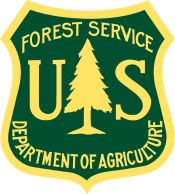What drives ponderosa pine regeneration following wildfire in the western United States?
| Title | What drives ponderosa pine regeneration following wildfire in the western United States? |
| Publication Type | Journal Article |
| Year of Publication | 2019 |
| Authors | Korb, JE |
| Secondary Authors | Fornwalt, PJ |
| Tertiary Authors | Stevens-Rumann, CS |
| Journal | Forest Ecology and Management |
| Volume | 454 |
| Keywords | Climatic stress, Distance to seed source, Elevation, Pinus ponderosa, regeneration, technical reports and journal articles, wildfire |
| Abstract | Ponderosa pine (Pinus ponderosa Lawson & C. Lawson) is a prominent tree species in forests of the western United States. Wildfire activity in ponderosa pine dominated or co-dominated forests has increased dramatically in recent decades, with these recent wildfires often burning in an uncharacteristic manner due to past land management activities and changing climate. The structure and function of vegetative communities that develop following recent wildfires are highly contingent on ponderosa pine regeneration, making it important that the factors influencing this regeneration be thoroughly understood. In this evidence-based review, we qualitatively synthesized publications that examined how the post-fire abundance of ponderosa pine regeneration was related to such factors. We identified 33 relevant publications, from which we synthesized relationships for 21 factors. Numerous publications indicated that distance to seed source (e.g., distance to nearest live overstory tree or group of trees) was a factor that clearly affected post-fire ponderosa pine regeneration abundance; with few exceptions, these publications demonstrated that as distance to seed source increased, the amount of regeneration decreased. Climatic stress (e.g., Palmer Drought Severity Index, actual evapotranspiration, climatic moisture deficit) and elevation also emerged as well-studied factors with a clear relationship to post-fire regeneration abundance. Specifically, areas with lower climatic stress and/or at higher elevations generally harbored more regeneration than areas with higher climatic stress and/or at lower elevations; together, these factors highlight that cooler, moister environments enhance regeneration. The other 18 factors were either well studied but did not have consistent relationships with regeneration abundance, or were not well studied, highlighting research areas that could benefit from further attention. Overall, the strong influence of distance to seed source, climatic stress, and elevation on post-fire ponderosa pine regeneration abundance has important implications for post-fire vegetative recovery and management, particularly in light of recent and predicted changes in wildfire activity and climate. |
| DOI | 10.1016/j.foreco.2019.117663 |




